Contenuti_italiano
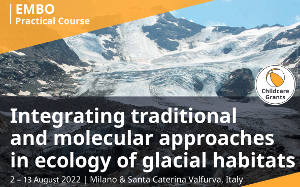 EMBO Practical Course Integrating traditional and molecular approaches in ecology of glacial habitats (ICME)
EMBO Practical Course Integrating traditional and molecular approaches in ecology of glacial habitats (ICME)
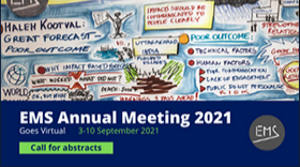 L'Annual Meeting of the European Meteorological Society–European Conference for Applied Meteorology and Climatology 2021, si svolgerà quest'anno come evento online. Programma
L'Annual Meeting of the European Meteorological Society–European Conference for Applied Meteorology and Climatology 2021, si svolgerà quest'anno come evento online. Programma
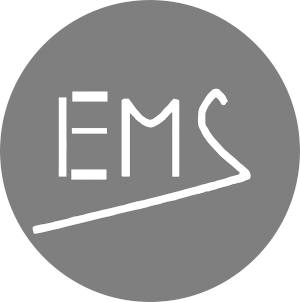 The cryosphere and cold region processes in the climate system
The cryosphere and cold region processes in the climate system
Sessione UP2.4 The cryosphere and cold region processes in the climate system all'interno della EMS2022 di Bonn (Germania), 4-9 settembre 2022.
Conveners: Renato R. Colucci (CNR-ISP), Andrea Fischer (Univ. Innsbruck)
EMS 2022 si svolgerà in modalità ibrida (presenza + remoto)
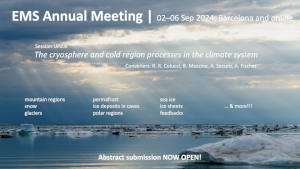 The 2024 Annual Meeting of the European Meteorological Society will take place as a hybrid event at the Historical University of Barcelona & online from 2 to 6 September 2024. This conference focus topic aims to explore the critical role of weather and climate research in shaping policies, strategies, and technologies that will pave the way towards a climate-neutral Europe.
The 2024 Annual Meeting of the European Meteorological Society will take place as a hybrid event at the Historical University of Barcelona & online from 2 to 6 September 2024. This conference focus topic aims to explore the critical role of weather and climate research in shaping policies, strategies, and technologies that will pave the way towards a climate-neutral Europe.Conveners: Renato R. Colucci (CNR-ISP), Bianca Mezzina, Andrea Securo (CNR-ISP), Andrea Fischer
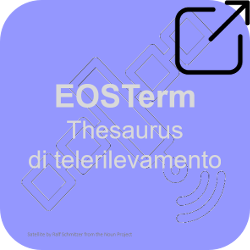 Il progetto è stato avviato con l'obiettivo di sviluppare un sistema terminologico controllato e strutturato relativo al GIS e al telerilevamento. La prima fase è consistita nella identificazione di potenziali fonti terminologiche, nella selezione di termini appropriati, nella loro estrazione e nella creazione di un database terminologico.
Il progetto è stato avviato con l'obiettivo di sviluppare un sistema terminologico controllato e strutturato relativo al GIS e al telerilevamento. La prima fase è consistita nella identificazione di potenziali fonti terminologiche, nella selezione di termini appropriati, nella loro estrazione e nella creazione di un database terminologico.
Le fonti utilizzate per raccogliere la terminologia consistono in:
• GIS Dictionary of Association of Geographic Information - AGI
• CCRS Remote Sensing Glossary of Canada Centre
• ATIS Telecom glossary 2000
sono state prese in considerazione altre fonti:
• Glossary of Cartographic Terms of Texas University
• Dictionary of Abbreviations and Acronyms in GIS, Cartography and Remote Sensing of the University of California
• Glossary of Oceanography, Climatology and the Related Geosciences
• GIS Glossary of Environmental Systems Research Institute Inc. (ESRI)
• Glossary of GIS and Metadata terms of Environmental On-Line Services (ERIN)
La terminologia è stata analizzata rispetto al grado di rilevanza semantica nel campo del telerilevamento e del GIS. Sono stati esclusi i termini troppo generici o che sono stati considerati non pertinenti. Sono stati esclusi anche gruppi di termini che potevano essere raccolti in specifiche appendici - per esempio, termini relativi a organizzazioni o istituzioni internazionali. Infine, sono stati identificati e contrassegnati i termini che sono stati considerati più specifici sui GIS e quelli più dettagliati per il telerilevamento.
I termini sono stati classificati secondo la struttura superiore EARTh. La classificazione semantica prevede l'attribuzione di ogni termine in un albero di relazione a partire dal concetto più generale rappresentato dalla categoria.
Il risultato è un sistema terminologico inglese-italiano contenente circa 3.000 termini.
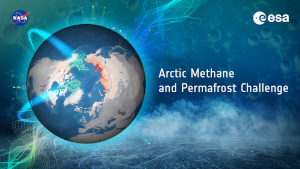 The European Space Agency (ESA) is organising an Earth Observation (EO) training course in collaboration with the NASA Jet Propulsion Laboratory (JPL) and the Svalbard Integrated Arctic Earth Observing System, SIOS. The course will be held for researchers, students, PhD students and young professionals who use EO technology within their research or work and want to improve their knowledge of remote sensing. In total 24 students can attend the summer school.
The European Space Agency (ESA) is organising an Earth Observation (EO) training course in collaboration with the NASA Jet Propulsion Laboratory (JPL) and the Svalbard Integrated Arctic Earth Observing System, SIOS. The course will be held for researchers, students, PhD students and young professionals who use EO technology within their research or work and want to improve their knowledge of remote sensing. In total 24 students can attend the summer school.
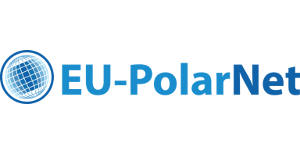 The third EU-PolarNet 2 Call for Services is now open! With the call, EU-PolarNet 2 asks to formulate activities related to research needs of the European Polar Research Programme.
The third EU-PolarNet 2 Call for Services is now open! With the call, EU-PolarNet 2 asks to formulate activities related to research needs of the European Polar Research Programme.
A kind of seed money will be offered to support the preparation, planning or development of new ideas and lines of research, (e.g. workshops, desk studies or travels).
Applications must be received by 20th of December 2022 – 14:00 CEST.
 The EU-PolarNet 2 Call for Services is open for submissions until 20 May 2022.
The EU-PolarNet 2 Call for Services is open for submissions until 20 May 2022.
EU-PolarNet 2 seeks support from the European Polar Community to develop ideas for concrete research activities. For this purpose, EU-PolarNet 2 will open Calls for Services for all six research needs of the European Polar Research Programme.
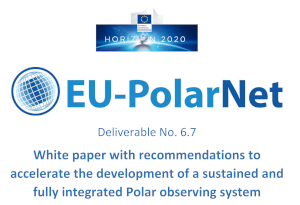 This EU-PolarNet 2 White Paper provides more than 80 actionable policy-level recommendations within seven pillars, to strengthen international collaboration in polar observation and facilitate transfer of knowledge between the Arctic and the Antarctic. The recommendations seek to consolidate existing initiatives, integrate infrastructures and funding mechanisms to enhance collective comprehension of polar environmental changes. Collaboration between EU (European Union) Member States and non-EU Arctic and Antarctic countries is recommended to address climate change threats and to encourage unity among nations in polar observation. DOI:/10.5281/zenodo.10929817
This EU-PolarNet 2 White Paper provides more than 80 actionable policy-level recommendations within seven pillars, to strengthen international collaboration in polar observation and facilitate transfer of knowledge between the Arctic and the Antarctic. The recommendations seek to consolidate existing initiatives, integrate infrastructures and funding mechanisms to enhance collective comprehension of polar environmental changes. Collaboration between EU (European Union) Member States and non-EU Arctic and Antarctic countries is recommended to address climate change threats and to encourage unity among nations in polar observation. DOI:/10.5281/zenodo.10929817
 The side event will start the Joint Action on Polar Research. The workshop shall identify challenges, best practices, and next steps for implementing cross border access to polar research facilities and infrastructure. MORE INFO
The side event will start the Joint Action on Polar Research. The workshop shall identify challenges, best practices, and next steps for implementing cross border access to polar research facilities and infrastructure. MORE INFO
More...
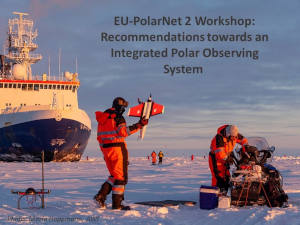 EU-PolarNet 2 will arrange an on-line workshop on 7th June 2022 at 13-18 CEST, aiming to facilitate better alignment of observing system efforts in the Arctic and Antarctic, and to create actionable policy-level recommendations to accelerate the development of an integrated polar observing system.
EU-PolarNet 2 will arrange an on-line workshop on 7th June 2022 at 13-18 CEST, aiming to facilitate better alignment of observing system efforts in the Arctic and Antarctic, and to create actionable policy-level recommendations to accelerate the development of an integrated polar observing system.
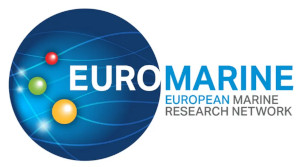 The annual Open Science Day on the 13th of February, themed Science at the boundaries: Addressing the brink of the social-ecological and climatic tipping points of marine ecosystems. Welcomes scientists, experts, and stakeholders to participate in designated sessions.
The annual Open Science Day on the 13th of February, themed Science at the boundaries: Addressing the brink of the social-ecological and climatic tipping points of marine ecosystems. Welcomes scientists, experts, and stakeholders to participate in designated sessions. 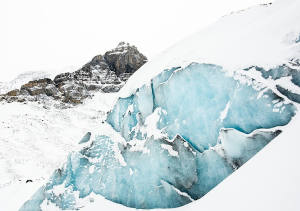
16 Dicembre 2020
Un team internazionale composto da ricercatori dell’Istituto di scienze polari del Consiglio nazionale delle ricerche (Cnr-Isp), Aberystwyth University in Galles (UK), International Center for Theoretical Physics (Ictp) e Dipartimento di matematica e geoscienze dell’Università di Trieste ha pubblicato una ricerca sulla rivista scientifica internazionale Climate Dynamics sull’evoluzione della linea di equilibrio di tutti i circa quattromila ghiacciai delle Alpi su un arco temporale di 200 anni, dal 1901 al 2100. La ELA (Equilibrium-Line Altitude), così si chiama la linea di equilibrio dei ghiacciai, dipende strettamente dai parametri climatici (temperature estive e precipitazioni invernali) e identifica la quota che separa la zona di accumulo di un ghiacciaio, quella cioè che alla fine dell’estate preserva parte della neve caduta nel corso dell’inverno precedente, e la zona di ablazione, dove invece la neve invernale sparisce completamente a causa del caldo estivo e riduce così anche il ghiaccio più antico.
 Ministero dell'Universita e Ricerca
Ministero dell'Universita e Ricerca
Programma Ricerche Artico
Programma Nazionale di Ricerca in Antartide
 Ministero degli Affari Esteri e della Cooperazione Internazionale
Ministero degli Affari Esteri e della Cooperazione Internazionale
L'Italia e l’Artico
L’Italia e l’Antartide
CNR-ISP
Consiglio Nazionale delle Ricerche
Istituto di Scienze Polari
c/o Campus Scientifico - Università Ca' Foscari Venezia - Via Torino, 155 - 30172 VENEZIA MESTRE (VE)
Salvo diversa indicazione, il contenuto di questo sito è concesso in licenza : Attribuzione - Non commerciale - Condividi allo stesso modo 4.0 Internazionale (CC BY-NC-SA 4.0) 
Privacy policy e Cookie policy - Amministrazione trasparente CNR







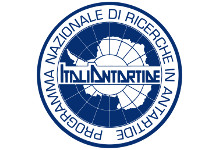 Title: Laghi Mercer e Whillans: Evoluzione di un Ambiente Subglaciale Idrologicamente attivo
Title: Laghi Mercer e Whillans: Evoluzione di un Ambiente Subglaciale Idrologicamente attivo 
